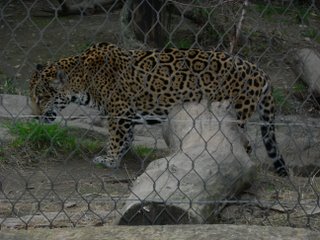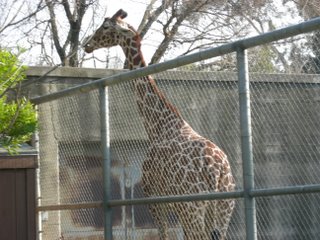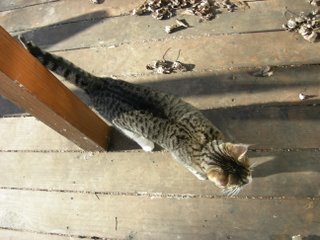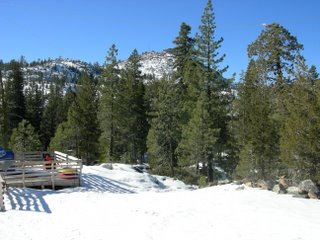I'm reading Mary McCarthy's
The Group, first published around 1952, which discusses a group of friends - Vassar classmates - beginning shortly after their graduation in 1933. It is interesting to read some of the "advances" of the time; for example, when discussing cooking, one asks the other whether she has tried the new type of lettuce, iceberg - "They'll never eat Boston lettuce again!" and another reports she is eating "alligator pear" which I assume is an avocado. They talk about the "Boston School" of cooking, which seemed to involve Boston lettuce and baked beans, and how they are trying all kinds of new things now.
Another character tries breastfeeding because her husband, a pediatrician, advocates it, but it is such a novelty that everyone is either fascinated or repelled by it (she even has a friend who is in publishing try to get her to write an article about it for Reader's Digest), but eventually it doesn't work out because they have the newborn on a
four-hour feeding schedule. Even though he is hungry after 2 hours (of course), she's not allowed to pick him up or feed him, and just wants the nurses in the hospital to let him lie in the bassinet crying for two hours. She can hear him down the hall crying. So of course she doesn't make enough milk since she's not getting enough sucking, and the attempt at breastfeeding fails. It is crazy making to read that section, even though it's fiction, to think of all those poor babies lying there hungry and crying with no one attending to them. What a weird time it was that doctors thought it was bad for some reason to pick up the baby if it is crying, and bad to feed the baby when he's hungry. They even speak derisively in the book of "Grandmother's time" when babies were fed on demand, and picked up when they were crying. What horrible ideas those were, eh? Well I guess it all comes full circle.
There's lots of discussion in the book about who's a Communist, and then the various sub-brands within that - the Trotskyites, the Stalinists, etc. all arguing with one another. That part's interesting as well.
 I took the boys to the Sacramento Zoo this afternoon. We had a good time.
I took the boys to the Sacramento Zoo this afternoon. We had a good time.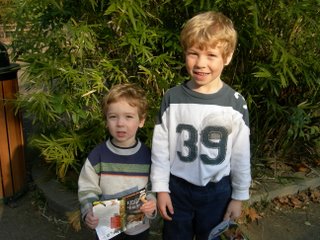
 Kids near the bamboo and Douglas holding his map. Douglas spent more time looking at the map than at the animals. Every time we got to one he would furiously check the map and say "Now let's go see the tiger!" or "Now let's go see the anteater!"
Kids near the bamboo and Douglas holding his map. Douglas spent more time looking at the map than at the animals. Every time we got to one he would furiously check the map and say "Now let's go see the tiger!" or "Now let's go see the anteater!"
